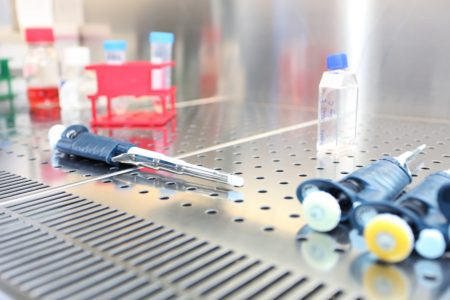
Exceptional circumstances call for exceptional measures. At all levels of the global economy, announcements are multiplying and purse strings are being untied to limit the economic and social consequences of the current sanitary crisis as much as possible.
The field of research, development and innovation plays a crucial role in searching for technological (or non-technological) and innovative solutions that can efficiently contribute to this new type of “war”.
On the European level, a call for research project proposals is about to close (the deadline is 31 March). The call was launched at the beginning of the month as part of the Innovative Medicines Initiative (IMI, a public-private partnership between the EU and the pharmaceutical industries) to support programmes aimed at the development of treatments and diagnostics to be used to better fight the current epidemic. This will also enhance the preparation for possible future epidemics. The European Commission provides funding to IMI through the Horizon 2020 framework programme and has already announced a contribution of €45 million. As a commitment of a similar magnitude is expected from the pharmaceutical industry, the total investment could reach €90 million.
New horizons
The Horizon 2020 programme and its successor, Horizon Europe, are clearly the cornerstone of the entire new system that is being put in place. “When this crisis is over, we must immediately prepare for the next one. This means investing more in research and ensuring that programmes such as Horizon Europe do not become hostages to short-term squabbles between member states,” warns German MEP Christian Ehler (EPP), rapporteur for Horizon Europe.
Furthermore, the European Commission launched an emergency appeal as early as 30 January in the context of the fight against the COVID-19 epidemic. Two months later, Brussels has mobilised €47.5 million, including €37.5 million from Horizon 2020 that have been directly allocated to urgent research work for the development of diagnostic tests, vaccines and treatments.
In the end, 17 projects (out of 91 submitted ones) were selected. 136 research teams from across the EU and beyond will take part.
A Luxembourg taskforce
The 17 projects do not include any Luxembourg research teams, but this obviously does not mean that nothing is moving in the Grand Duchy. All national public players (the public research centres LIH, LISER and LIST, the national health laboratory LNS, the university and the National Research Fund) have formed a task force coordinated by the Ministry of Higher Education and Research.
Its roadmap includes the coordination of the support provided by the national research community to healthcare organisations and to the government; help to identify and centralise priority activities; and the centralisation of contacts between the national research ecosystem, the clinical community and the authorities.
The taskforce will also coordinate studies aimed at assessing the extent of the spread of the virus, identifying risk factors that contribute to the negative progression of the disease and carrying out simulations and projections on the short and medium terms of the impact and the spread of the COVID-19 pandemic. This is an essential tool for future decision-making on the restrictions to be implemented or lifted.
Luxinnovation has been invited to head the taskforce working group responsible for the interaction with the private sector. The role of the national agency is to invite companies to submit ideas and proposals to scientific working groups, collect and consolidate proposals, and transmit them to other thematic research working groups set up by the taskforce to obtain a scientific assessment of their relevance.
Open access scientific publications
At the same time, all the research institutions have already made equipment and staff that is specialised in handling it available to the health sector. The “Research Luxembourg” initiative, which brings together Luxembourg’s main public research players, also welcomes the great mobilisation of general practitioners still in training who have volunteered to strengthen the nursing teams in Luxembourg’s four hospitals.
“In addition, almost all of the scientific data and publications on COVID-19 are freely available in digital form. This data is a very valuable source that can easily be analysed on a massive scale using artificial intelligence techniques. This is an area where Luxembourg has strong skills,” said a statement released last Thursday by Research Luxembourg.
The National Research Fund will obviously provide additional funding to accelerate all these efforts and catalyse new ideas and new collaborations between researchers.
Photo: Bohumil Kostohryz

